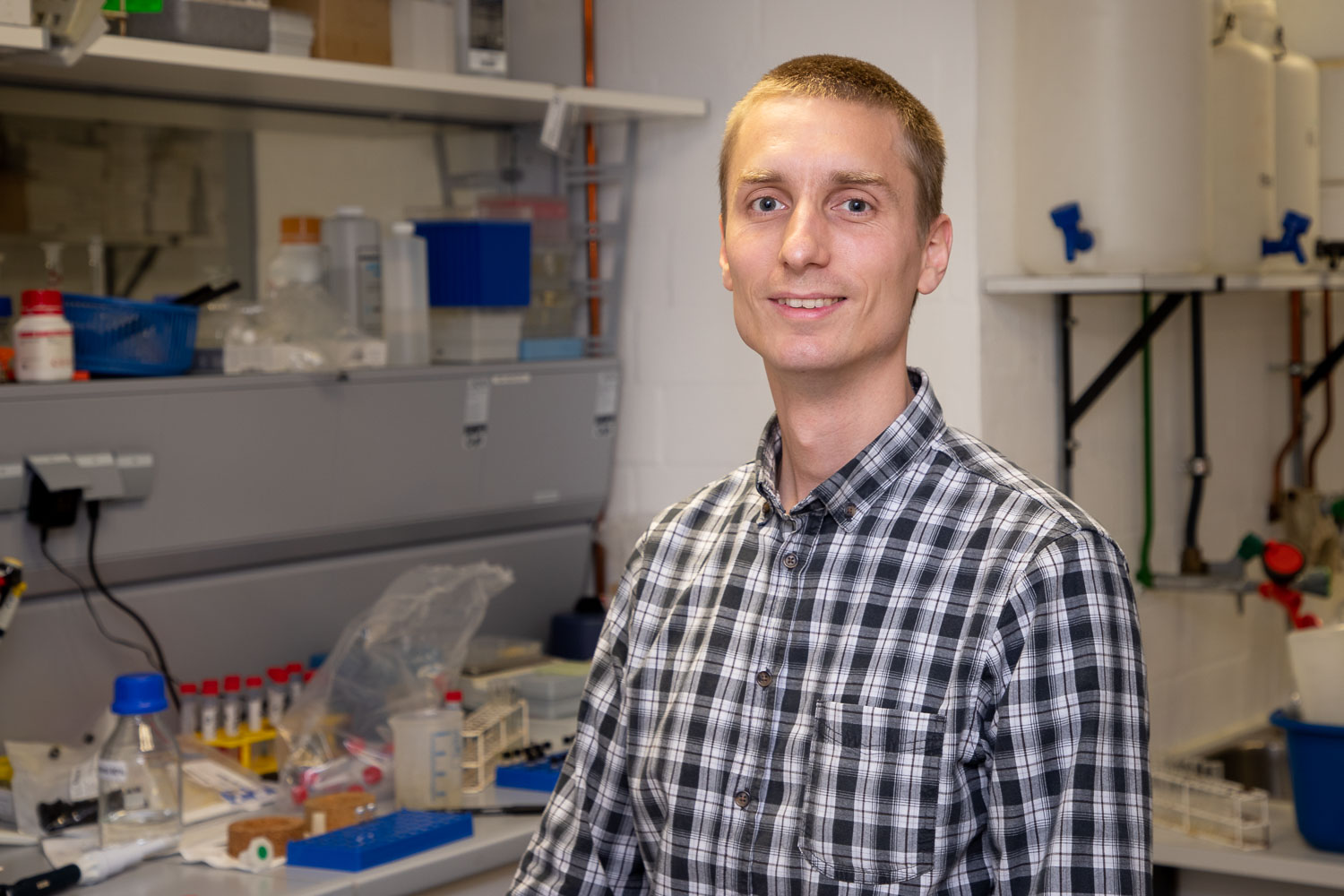“The advice was essential for my path” Professor Boas Pucker on career mentoring for early career researchers
Since 2021, TU Braunschweig has offered mentoring, especially for junior professors, tenure-track professors and postdocs. This is a classic 1:1 mentoring, which is arranged individually between the participants. The most important starting point is always the career development of the junior professors or postdocs. With the mentor, they can discuss career development and opportunities independently of hierarchies and benefit from the individual experiences of established professors. Professor Boas Pucker was appointed as a junior professor with tenure track for Plant Biotechnology and Bioinformatics at TU Braunschweig in 2021. He signed up for mentoring very early after starting. We talked to him about his experiences with this.
Had you already participated in mentoring before your time at TU Braunschweig?
Yes, I took part in the optional mentoring offered at Bielefeld University in my first semester there. It was a very good experience and helpful for my studies. After that, there were no offers of formal mentoring with regard to my career. However, while earning the Bielefeld University Teaching Certificate, I received mentoring to improve my teaching. A colleague from psychology gave me a lot of good advice at that time. That was beneficial for my teaching skills and thus indirectly for my further career.
As a basic principle, I have used every opportunity to get career tips from researchers at different career stages. I am thinking, for example, of numerous, long conversations during lunch, at barbecues, at summer parties or at Christmas parties. I am very grateful for the numerous pieces of advice and they were essential for my path to TU Braunschweig.
What was your intention in taking up the mentoring offer at TU Braunschweig?
I wanted to take every opportunity to get advice on how to get off to the best possible start at TU Braunschweig. It is very helpful when I not only have to learn from my own mistakes, but can also draw on the experiences of others. I had identified administrative processes as my biggest challenge and was looking for solutions to deal with them efficiently. The other two central topics were opportunities for obtaining external funding and strategies for setting up my own research group. In addition, I hoped to learn more about the structures of TU Braunschweig.
What has been your experience with mentoring at TU Braunschweig?
My experience with mentoring by Professor Daniel B. Werz has been very good. Numerous pieces of advice have helped me avoid mistakes. We first got to know each other online and met in person for conversations after I started at TU Braunschweig. Professor Werz had also invited me to contact him at any time with questions, even after he had moved to the University of Freiburg.
Who would you recommend it to?
In general, I would recommend mentoring to all researchers at TU Braunschweig. The importance of good mentoring is enormous and I have already benefited greatly from it.
What should one look for in order for a mentoring relationship to work well?
Being open to advice from experienced researchers is, of course, an essential prerequisite for successful mentoring. Specific questions are good, but mentoring is also helpful without them. The choice of a mentor should be made based on one’s own expectations of mentoring. For me, it was very important to have a mentor from the same faculty but from a different subject. On the one hand, this allows insights into the structures of the faculty, and on the other hand, there are no conflicts of interest in the counselling. Furthermore, advice from an experienced and successful professor was important to me. The decisive factor for my selection was that Prof. Werz had acquired an ERC grant.
And what do you think a mentor should bring to the table?
This question cannot be answered in a general way. I think it’s very important to be willing to talk openly and honestly about your own experiences, mistakes and successes. Of course, many years of experience in science and at TU Braunschweig are also important.
How important is it that both sides have a connection with each other?
Confidential conversations are the basis for mentoring. Without mutual trust and open, direct communication, I don’t think effective mentoring is possible. Since it is a voluntary offer and both sides are interested, this should succeed in most cases. Therefore, I can only repeat my recommendation to give mentoring a try.
What advantages and disadvantages do you see in this form of mentoring? What would you like to see in order to improve mentoring?
Basically, I find a mentoring programme very important and see only advantages. It is good that participation is voluntary, because forced mentoring cannot work in my opinion. I also don’t see why anyone should refuse support. Additional advice from mentors at different career stages could be helpful to get advice from different perspectives. For example, I would be interested in experiences from someone at the end of the tenure-track phase. In light of the upcoming evaluations, that would be very helpful.

